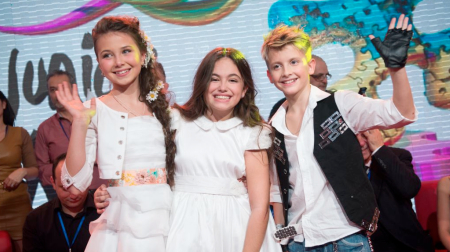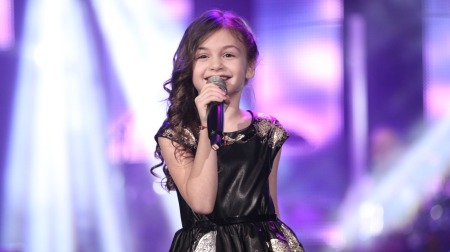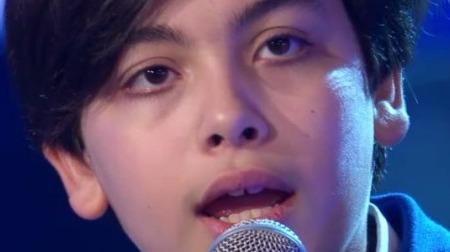The buzz in the Press Centre is about the prospect that Malta may just win the Junior Eurovision song contest again. The pressure on Frederica Falzon is building as the whole country goes Junior Eurovision crazy.
The song is a hot favourite with a great running order slot second last and the President is already confirming Malta’s desire to host Junior Eurovision again if this happens.
Ben Robertson has been doing some calculations again to look if Malta and other contenders can win this contest again, and where the points would be likely to come from.
162 is the target
In looking back on the last eleven Junior Eurovision Song Contests we can work out that the average winner will have an average of 9.35 points per voting country. This is much higher than the Eurovision Song Contest in May as the number of voting countries is lower.
With 16 juries in the Junior Eurovision song contest, plus the automatic twelve points at the start of the voting sequence we calculate that an average winner would get 162 points in the contest. A winner of course could get less points than this, but it would likely be a very close voting sequence in this case.
There are hundreds of combinations across 15 countries and one Kids Jury to get 162, but the most normal spread we could expect is as follows:
4 x 12 points
6 x 10 points
4 x 8 points
2 x 7 points
plus the automatic twelve points
We will work out our predictions for which countries could award such points for Malta and the two other favourites of the non-Soviet countries, Bulgaria and Italy, and assess how likely they could be to take victory. For other favourites being discussed, such as Russia and Armenia, we don’t need to discuss as their voting blocks are clearly established through Eurovision voting history and dominate with the heavy Eastern European influence at Junior Eurovision.
Yes Malta Can Do The Double
To assess if Malta does have the potential to do the double, we are looking back on Malta’s two biggest successes in Eurovision history. ‘Angel‘ sang by Chiara in 2005 and ‘The Start‘ by Gaia Cauchi winning Junior Eurovision last year.
Using the points from these contests as the basis, if Malta received the 162 points above then we could see it most likely collecting the following scores.
12: Italy/San Marino/Ukraine/Kids Jury
10: Netherlands/Russia/Belarus/Armenia/Croatia/Slovenia
8: Sweden/Bulgaria/Cyprus/Montenegro
7: Serbia/Georgia
Some links suggest it could be possible. The Belarussian jury was a very strong showing of support in the Eurovision Grand Final this May from all five jury members, however we equally can comment on the lack of points from the Belarussian televote (placing Coming Home in 24th place). Of course Gaia last year got ten points from The Netherlands, Belarus and Russia so this projection is in keeping with previous results.
Should Malta deliver the stand-out performance that many here are expecting, it could well result in us returning to the sunshine island.
Bulgaria Could Take Their First Title
To assess Bulgaria’s chances we look at the only Eurovision song that had significant success in their short history. Their only qualification was in 2007 with ‘Voda‘ performed by Elitsa and Stoyan, but that resulted in a fifth place.
If Bulgaria was to hit 162 points, here is how we could predict the voting would happen.
12: Cyprus/Malta/Slovenia/Kids Jury
10: Croatia/San Marino/Serbia/Montenegro/Italy/Armenia
8: Russia/Ukraine/Belarus/Netherlands
7: Sweden/Georgia
There are lots more uncertainties with assessing the possibility of these voting exchanges. The song from Bulgaria in 2007 got support, but not necessarily from the countries taking part in Saturday’s show. Cyprus was the only country that gave Bulgaria one of the top three scores from Eurovision 2007 that competes in this year’s contest.
Furthermore assessing the points that Italy would be likely to reward Bulgaria with is difficult as they have only featured in a Eurovision show together at any point. However that one show, a semi final in 2011, scored Bulgaria ten points. The same applies to San Marino as well, San Marino awarded ‘Samo Shampioni‘ eight points in 2013.
We are also asking here for Bulgaria to make unprecedented ground to take some points from the Soviet voting group. This projection needs a 10 point reward from Armenia and 8 from Russia, Ukraine and Belarus. This would require taking away points from the strong entries of their neighbouring countries. Malta last year showed it was possible, but Bulgaria is going to have to gather support from untested areas should impressive result in their first Eurovision trophy on Saturday night.
Past Records Suggest Italy Needs A Miracle
Italy’s return to Eurovision over the last four years has resulted in three top 10 scores. This is a country doing well in the big contest and favoured by many of the journalists. With focus towards their two highest placements in this period, ‘Madness of Love‘ by Raphael Gualazzi and ‘L’essenziale‘ by Marco Mengoni, we look to see where Italy would need to score points from to do well.
12: Malta/San Marino/Slovenia/Kids Jury
10: Cyprus/Georgia/Croatia/Serbia/Armenia/Montenegro
8: Netherlands/Bulgaria/Ukraine/Belarus
7: Sweden/Russia
This asks the form book to be turned upside down. Marco Mengoni’s classically Italian ballad is similar in style to what we will see from Italy on Saturday. Russia, Bulgaria, Netherlands, Ukraine, Sweden and Belarus of the countries voting this week completely ignored giving Italy points in Eurovision 2013. All but Belarus (awarding three points) ignored Italy in their second-place result from Eurovision 2011 as well. We are now asking some of these countries to score this very Italian ballad high in their top four.
If just one of these drops off to another zero then we are asking for Italy to gain four more twelves to maintain the winning average. It is looking like a very hard task for Vincenzo to convert media hype and stunning rehearsals into scoring success at the top of the leaderboard.
Take Everything With A Pinch Of Salt
Voting in the Eurovision Song Contest and the Junior Eurovision Song Contest is always full of surprises. Yes it can be predicted, but variables come up all the time from what happens on the night.
Factors that need to be taken into account compared to other contests is with the nature of Junior Eurovision voting. The threshold to reach televote has been lowered for this year’s contest meaning it is more likely each country will be able to produce a full televote and jury split after the show.
Furthermore we have not accounted for any possible differences that could arise from San Marino and their use of the jury again (due to the difficulties in acquiring a televote) and Slovenia (who are showing the show on a one hour delay).
We should also make clear that our statistics here take the average of all winners, of which some were runaway victories. 2007 Junior Eurovision’s winning entry had an average of 7.81 points per voting country which would result in needing just 137 points. However bear in mind this victory was one of the two in Junior history with a one point winning margin.
Whatever happens on Saturday night, expect it to be close. Seven of the eleven Junior Eurovision contests have been decided by less than twelve points. Expect drama, expect excitement and expect much of what I write above to be proved false when the points are read out by each spokesperson. May the best song win.












